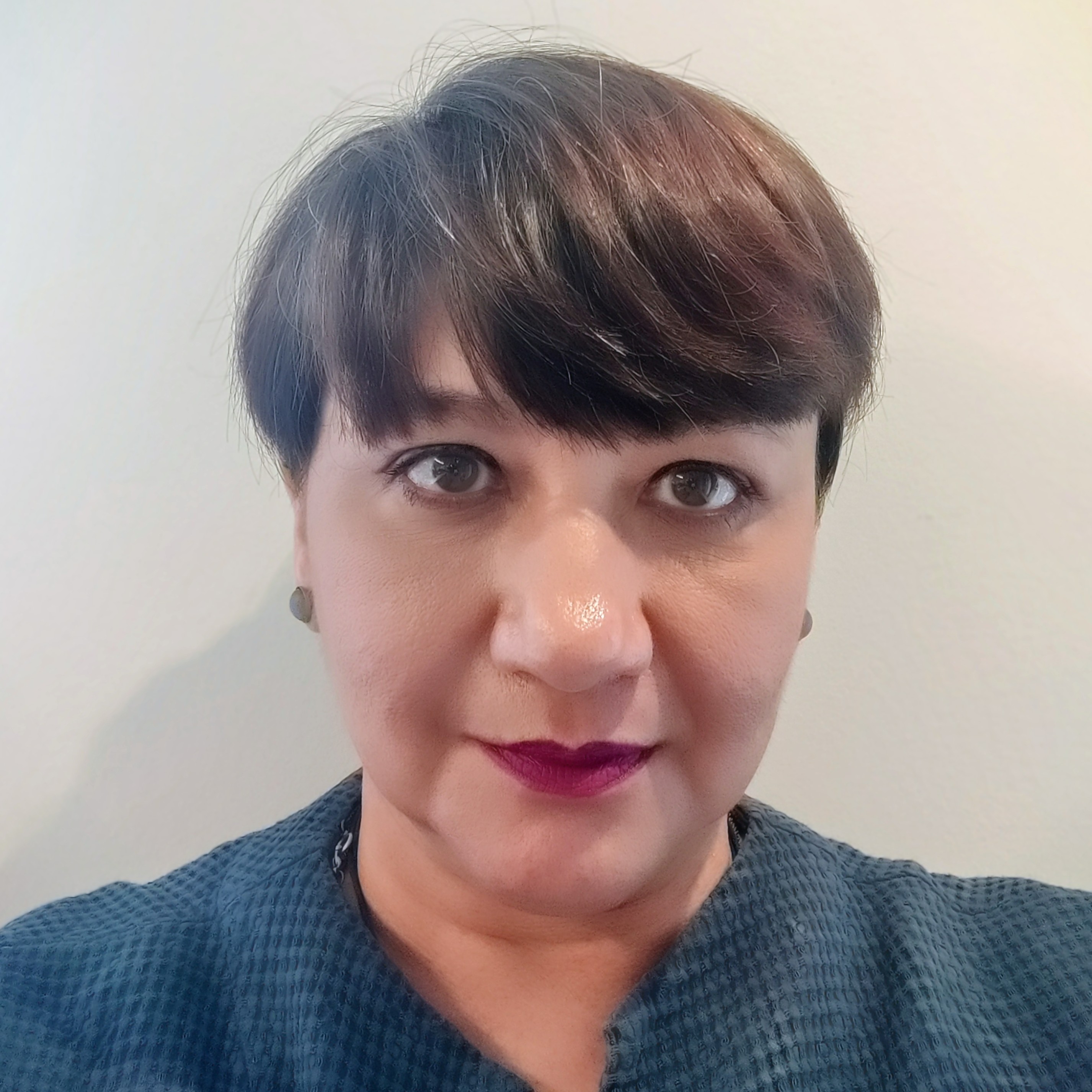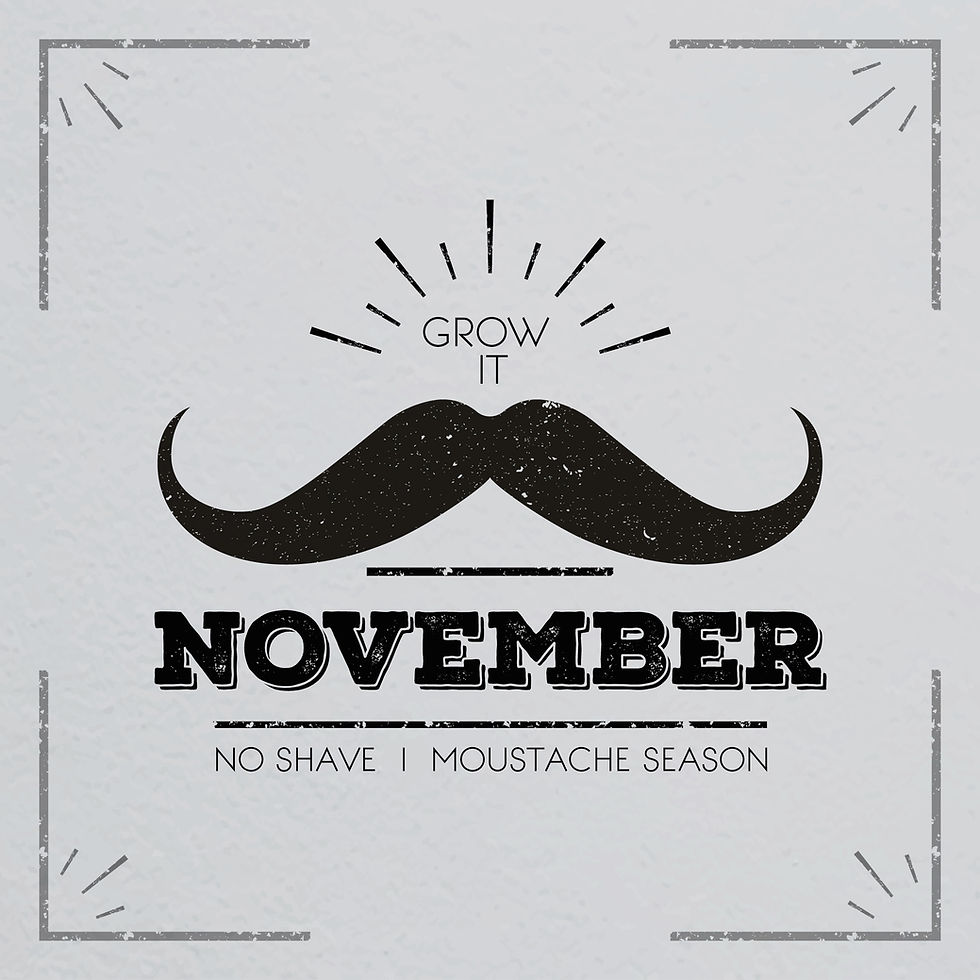Become Involved in the Fight Against Cancer!
- Loann West

- Nov 12, 2025
- 3 min read

Movember began in the early 2000s with a simple idea: grow a mustache throughout November and have your friends, family, and associates sponsor your efforts. It advocates for funding and research into men’s health issues, such as prostate and testicular cancer, and to encourage outreach into support, including suicide prevention, for men facing a cancer diagnosis.
For too long, cancer wasn’t spoken of except in hushed tones full of shame and recrimination as if it was a personal failing and not a disease. People hid their diagnosis, suffering in isolation and depression. Men in particular are still likely to keep silent until it’s too late. Fortunately, Movember has helped to reduce the social stigma and has raised nearly a billion dollars worldwide, a staggering number for what started as a grassroots movement. Mustaches are fun and visible conversation starters!
No-Shave November began in 2009 from a Facebook group and encourages people of every gender to stop shaving throughout the month of November. Participants often donate the money they would have spent on grooming supplies—on average $60 to $150 per month—to the cancer charity of their choice.

October was established as Breast Cancer Awareness Month forty years ago by the American Cancer Society (ACS), inspired by former First Lady Betty Ford, who came forward with her breast cancer diagnosis in 1974 at a time when speaking openly about disease was still viewed as shameful.
In 1989, Evelyn H. Lauder of Estée Lauder launched the pink ribbon campaign, and since then, the pink ribbon has become the global symbol of breast cancer awareness.
Breast Cancer Awareness Month’s goals are two-fold:
Encourage regular testing such as self-exams, mammograms, and breast exams.
Advocate for funding of research, treatment, and ultimately, a cure.
These organizations, along with many others, encourage people to participate in events like “Relay for Life,” “Making Strides Against Breast Cancer" walks and fundraisers at your job or within your own organization, including asking your company if they will match donations, sponsor events, or support company-wide volunteer days. By celebrating life and facing cancer with humor and resilience, we can fight for better treatment and cures, as well as personal and financial support for EVERYONE struggling with a cancer diagnosis.
In the last 40 years, breast cancer mortality has fallen 40%! In addition, three out of four women in the US are up-to-date on screening and are informed about early symptoms and self-examination. Remember, breast cancer doesn’t just affect women. Men should be doing self-examinations on a regular basis and talking with their doctor about any abnormalities.
Cancer affects people in all walks of life, and while increased early diagnosis and newer treatments have increased life expectancy, over 20 million people are diagnosed with cancer in the United States each year, with nearly 700 thousand deaths. Currently, four million people are living with breast cancer in the US.
Part of the difficulty with finding a cure for cancer is that cancer is not one single disease. Cancer is the abnormal and uncontrolled growth of cells. There are over 100 types of cancer that vary by the type of cell they originate from, where they develop, and how they spread throughout the body. That’s why dedicated research into each type of cancer is essential.


Cancer numbers may seem to be rising, but the good news is that part of this increase is due to better awareness, testing, and diagnosis. Cancer treatments continue to improve, with promising new methods being developed, including mRNA.
Even if you have not been personally affected by cancer, be an ally. Let people know that they can speak to you in times of crisis.
If you or your family are facing cancer, remember, you are NOT alone. There are support groups for both the cancer patient and caregivers. Reach out to your doctor and oncology team to find resources near you.




Comments